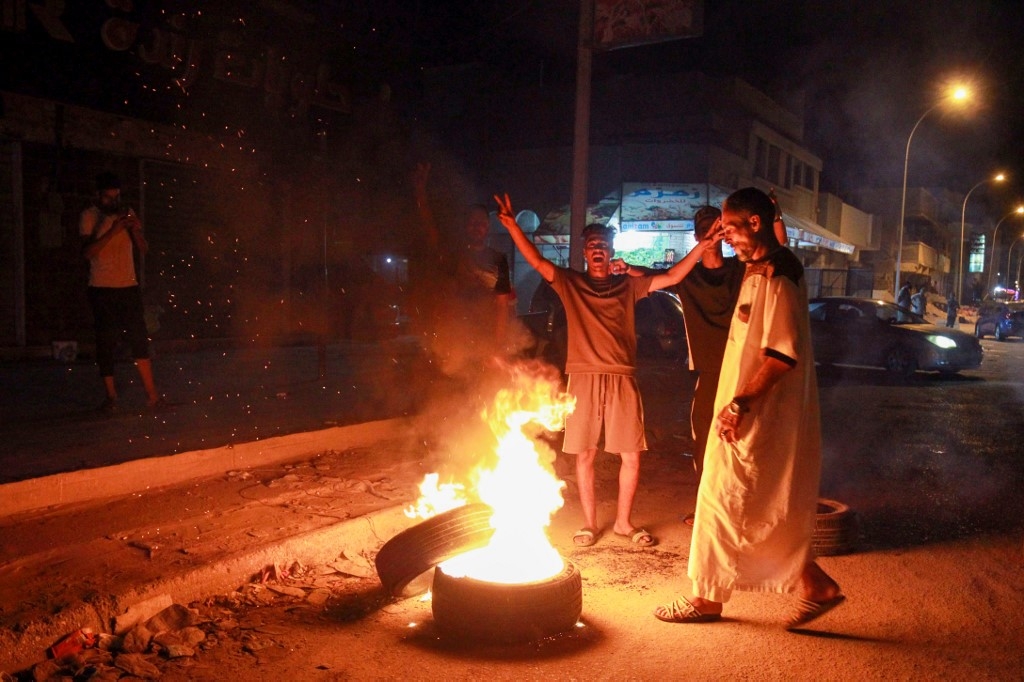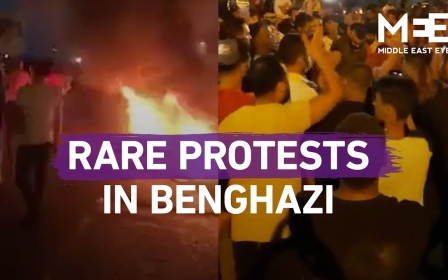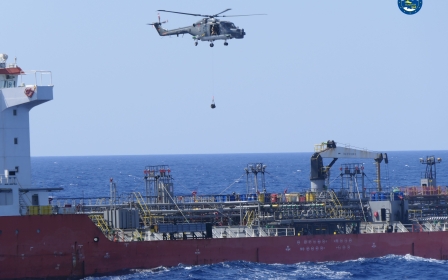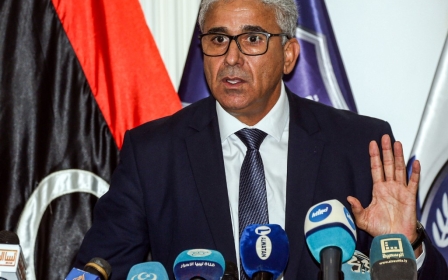Libyans burn Benghazi government building in protests over living conditions

Libyan protesters have torched the government headquarters in the eastern city of Benghazi amid growing anger over living conditions and corruption under the rule of military leader Khalifa Haftar.
Protests in Haftar-controlled eastern Libya entered a third day on Saturday and had also broken out in al-Bayda, where the government was previously based, in Sabha in the south, and for the first time in Haftar stronghold al-Marj, witnesses told Reuters.
New MEE newsletter: Jerusalem Dispatch
Sign up to get the latest insights and analysis on Israel-Palestine, alongside Turkey Unpacked and other MEE newsletters
Libya has been split into rival camps with parallel institutions in the east and west since 2014, with Haftar attempting to dislodge the UN-recognised Government of National Accord (GNA) in Tripoli.
Eastern Libya and much of the south is controlled by Haftar's self-styled Libyan National Army (LNA), which is aligned with a government and a rump parliament also based in the east.
A 14-month offensive by the LNA to take control of the capital crumbled in June, weakening Haftar.
Several hundred protesters turned out in the eastern towns to demonstrate against the political elite and over deteriorating living conditions, including lengthy power cuts and a severe banking crisis.
Oil blockade
Similar protests broke out in late August in western Libya against the government there, and a new demonstration was planned for Sunday. Several dozen protesters had gathered outside the GNA building by midday.
In Benghazi, the protesters, some armed with guns, set fire to the government building, leaving its white facade charred black, according to witnesses and pictures posted on social media.
The building was constructed after the LNA took control of Benghazi in 2017, after a campaign that left parts of the port city in ruins. The fire was later brought under control.
The economic crisis across Libya and power cuts in the east have been worsened by a blockade of most of the country's oil facilities imposed by the LNA and its supporters since January.
The United States said on Saturday that Haftar had agreed to end the blockade, but sources in eastern Libya said negotiations were ongoing.
Middle East Eye delivers independent and unrivalled coverage and analysis of the Middle East, North Africa and beyond. To learn more about republishing this content and the associated fees, please fill out this form. More about MEE can be found here.




